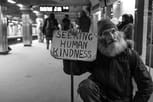 https://www.soberrecovery.com/images/og-image.gif
https://www.soberrecovery.com/images/og-image.gif
 https://cimg3.ibsrv.net/cimg/www.soberrecovery.com/619x412_85/835/Celebrate-Recovery-1-197835.jpg
619
412
https://cimg3.ibsrv.net/cimg/www.soberrecovery.com/619x412_85/835/Celebrate-Recovery-1-197835.jpg
619
412
Celebrate Recovery: A Personal Story
By Heather Adams 619
412
https://cimg3.ibsrv.net/cimg/www.soberrecovery.com/619x412_85/835/Celebrate-Recovery-1-197835.jpg
619
412
https://cimg3.ibsrv.net/cimg/www.soberrecovery.com/619x412_85/835/Celebrate-Recovery-1-197835.jpg
Celebrate Recovery began 25 years ago with 43 people at California’s Saddleback Church. Designed for those with “hurts, habits and hang-ups,” as its slogan says, CR offers biblically-based encouragement and hope for change. The program has impacted adults and teens all over the U.S. and across the globe.
My first experience with CR came in 2005 at my own church in Connecticut. On a brisk fall evening, I and about two dozen others walked into the sanctuary. We’d all been hearing about Celebrate Recovery for a few weeks, but only a select few know how it would work. In fact, this was the first recovery program of any kind that our church had ever hosted.
To be honest, at that point I was in denial about needing any recovery myself. Sure, I knew I had low self-esteem issues as well as an unhealthy relationship with food. And I would definitely have called myself a people-pleaser, especially in my marriage. But in my mind those things were just annoying, not a reason to take part in a recovery group. No, I was only there because I’d been asked to lead the opening worship song set. I wasn’t even going to stay for the meeting itself, but felt funny about walking out.
I’ll just stay and see what this is all about, I thought.
Well, I stayed that night and for many nights after. What I learned at those meetings and a small group that spun off of that changed the course of my life emotionally, mentally and spiritually. How? The best way to explain this would be to list a few elements of the program that still powerfully affect me.
1. Faith-Based Roots
Celebrate Recovery might not be the best fit for those who are outside the Christian faith. But as a believer in Christ, using worship music, prayer and Scripture as part of the recovery process seems only natural. The songs that we sing to open each big group meeting help me focus my thoughts in a positive and upward direction. The Bible verses we read remind me over and over that I’m connected to something more powerful than myself—which for me is the God who created me, who loves me unconditionally and who wants to help me grow. Knowing this calms me and urges me to keep working the process over the long haul.
2. Deep Fellowship
Casual friendships and acquaintances certainly have their place, but something amazing happens when people really let each other into their lives. That’s why the Celebrate Recovery process includes sharing time during the meetings and the chance to meet in smaller groups also. Just knowing others and being known and accepted has brought healing into my heart, and the common bond of faith has added a richness to the gatherings for me.
Taking off our masks and letting our defenses down isn’t easy, though—it means other people will see our messes. The first few meetings I went to I either passed or mumbled quickly through my time—I felt awkward and exposed. Eventually, however, I realized everyone else was in the same boat, and we were all taking the same risk together. This helped me to start looking at myself and talking about my stuff with more honesty, which is what leads to real recovery in our lives.
3. Inspiring Stories
I’ve always loved to hear stories—I think a lot of us do. Tales can entertain and amuse us for sure, but stories can offer a lot more, like valuable insights or advice that apply to our own lives. The opening section of our CR meetings include recorded and later in-person testimonies by members. Each one, whether about an addiction or a destructive set of behaviors, was pretty intense. Some were even hard to listen to—but I always left feeling inspired. Through Celebrate Recovery, I’ve learned to appreciate the struggles of others and give God praise for the victories. Now I’m more transparent about my own ups and downs, in case they can help anyone else who is struggling.
4. Emphasis on Personal Responsibility
Before CR came along, I had what could be called a victim mentality. If anything went wrong, I told myself it was someone else’s fault. I used a difficult childhood to excuse my bad decisions and dumb actions. But right from the beginning, CR challenged my faulty but familiar mindset. Major steps in the process required me to not only take a complete moral inventory of myself but also to then admit my wrongs to myself and others. These exercises, painful and often frustrating, made me want to give up more than once. I wasn’t alone in this—I actually noticed a drop in attendance. I pressed on, though, and the result was a new sense of self-acceptance. Discovering how much power I really had to affect my life for the better was exciting and hopeful.
My Celebrate Recovery large group met weekly for about a year, and I took part in a smaller group of four for another two years. The lessons and routines still guide my daily walk today. The most important of which is this: that even with all my “hurts, habits, and hang-ups,” I’m still valuable and loved by God and by others.
There is new hope for each of us in recovery every day, as long as we reach out for it.






